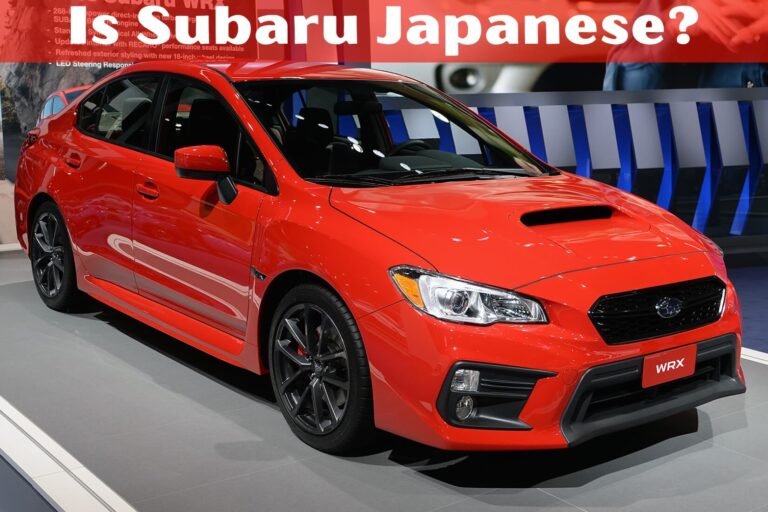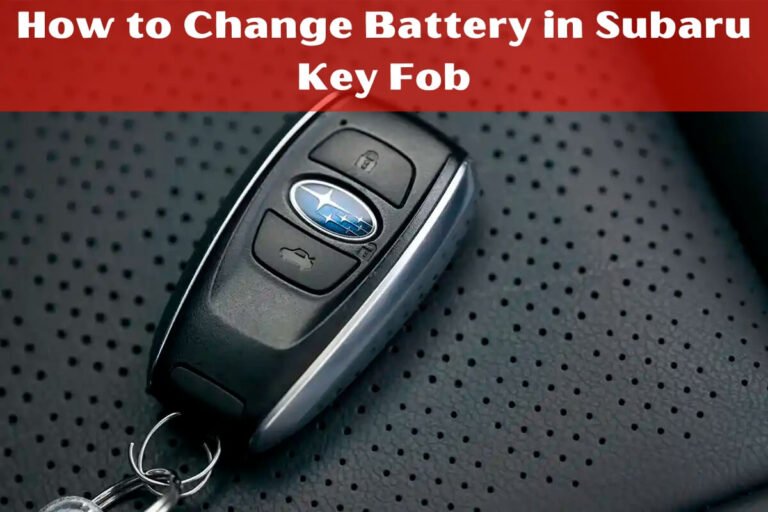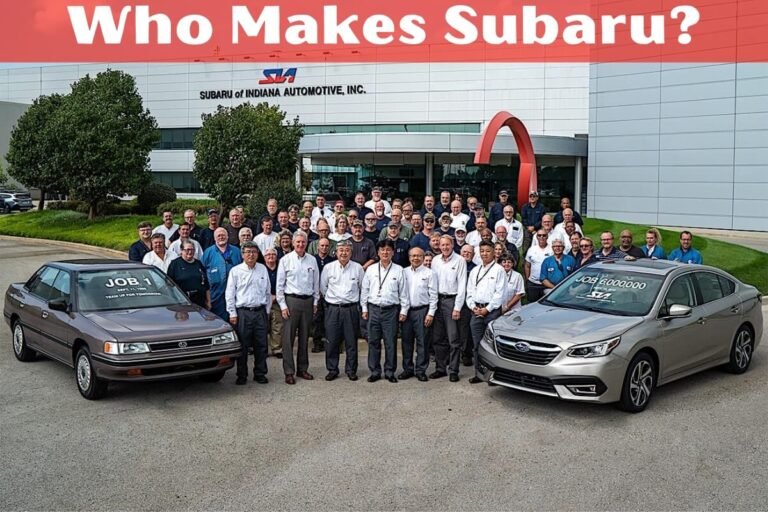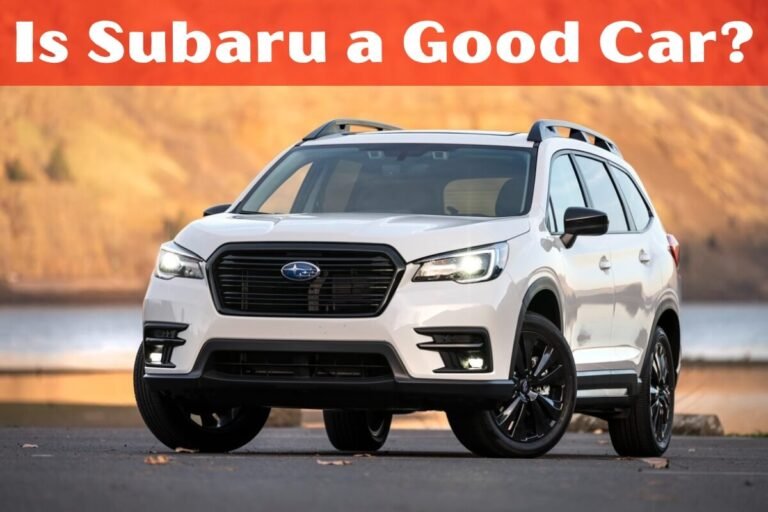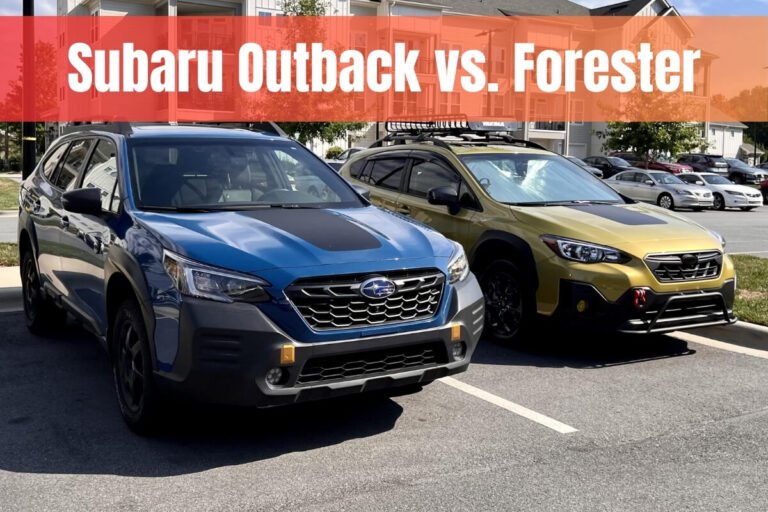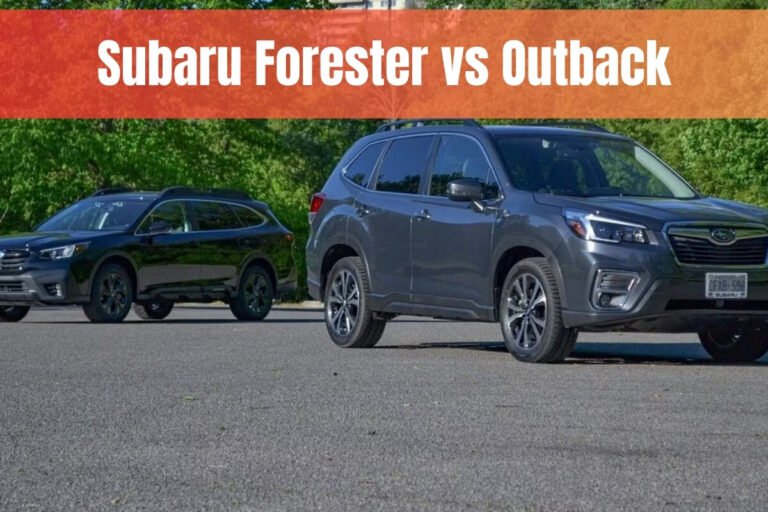Does Subaru Make Hybrid SUVs? A Comprehensive Guide
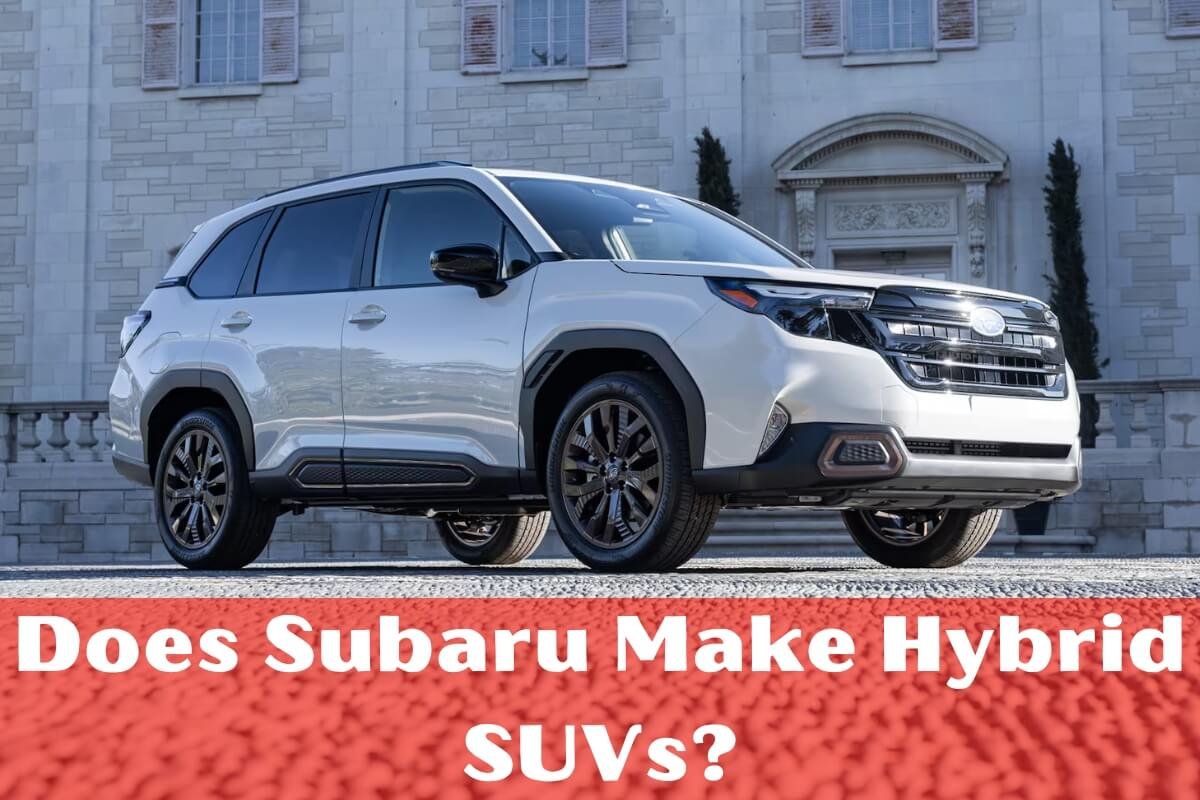
In today’s environmentally-conscious world, more and more automakers are embracing hybrid and electric vehicle technology. As consumers seek ways to reduce their carbon footprint and save money at the gas pump, hybrid cars have become an increasingly popular choice. One brand that has been steadily expanding its hybrid lineup is Subaru, known for its rugged yet eco-friendly all-wheel-drive vehicles.
But does Subaru make hybrid models? The short answer is yes, Subaru currently offers hybrid versions of two of its most popular SUVs – the Crosstrek and Forester. This in-depth guide will explore Subaru’s hybrid offerings in detail, including their unique e-Boxer hybrid technology, the history and future of Subaru hybrids, and why you may want to consider one for your next vehicle purchase.
What is a Hybrid Vehicle?
Before we dive into Subaru’s hybrid models, let’s quickly review what a hybrid vehicle is. A hybrid combines a traditional gasoline-powered engine with an electric motor and battery pack. This allows the vehicle to run on electric power alone for short distances, dramatically improving fuel efficiency, especially in stop-and-go city driving conditions.
The two main types are:
- Hybrid Electric Vehicles (HEVs): Cannot be plugged in to charge the battery. The battery is recharged through regenerative braking and by the gasoline engine.
- Plug-in Hybrid Electric Vehicles (PHEVs): Have larger battery packs that can be recharged by plugging into an electrical outlet. This gives extended electric-only range before the gas engine needs to kick in.
Key benefits of hybrids include better fuel economy, lower emissions, and a smoother driving experience compared to gas-only models.
Subaru’s Hybrid Lineup
Subaru currently has two hybrid SUV models available in the United States – the Crosstrek Hybrid and the soon-to-arrive Forester Hybrid. Let’s take a closer look at each one.
Subaru Crosstrek Hybrid
The Subaru Crosstrek Hybrid has been around since 2019 and is a plug-in hybrid version of Subaru’s popular Crosstrek subcompact SUV. It pairs a 2.0-liter Boxer four-cylinder gas engine with two electric motors and an 8.8 kWh lithium-ion battery pack.
This gives the Crosstrek Hybrid an electric-only range of around 17 miles and a total driving range of up to 480 miles when combining the electric motors and gas engine. Fuel economy is rated at an impressive 90 MPGe or 35 mpg when running just on gasoline.
The Crosstrek Hybrid also comes loaded with features like standard all-wheel drive, EyeSight driver assist technology, a roomy and versatile interior, and genuine off-road capability thanks to its 8.7 inches of ground clearance.
It’s available in two trim levels – base and touring – with the top Touring trim adding niceties like leather seats, a larger touchscreen, and a Harman Kardon audio system. Pricing starts around $36,000.
Thanks to its efficiency, capability, and value proposition, the Crosstrek Hybrid was named a 2020 Top Safety Pick+ by the IIHS.
Subaru Forester Hybrid
Subaru fans have been eagerly awaiting the launch of a hybrid version of the popular Forester compact SUV, and their wishes are finally being granted in 2025. Details are still emerging, but we know the 2025 Subaru Forester Hybrid will utilize the brand’s e-Boxer hybrid technology like the Crosstrek.
While official specs haven’t been revealed yet, we can expect the Forester Hybrid to pair Subaru’s 2.5-liter Boxer four-cylinder with an electric motor and high-voltage battery pack. Total system output will likely be north of 200 horsepower.
Fuel economy numbers should come in around 35-40 mpg combined based on the performance of rival models like the Toyota RAV4 Hybrid and Honda CR-V Hybrid. And of course, Subaru’s legendary Symmetrical All-Wheel Drive system will be standard.
The 2025 Forester Hybrid is slated to arrive at dealers in the spring of 2024. Pricing should start around $35,000 if Subaru positions it competitively against other affordable hybrid compact SUVs.
Subaru’s e-Boxer Hybrid Technology
At the heart of Subaru’s hybrid models is its proprietary e-Boxer hybrid system. This pairs one of Subaru’s trademark Boxer gasoline engines with an electric motor mounted near the vehicle’s transmission, along with a lithium-ion battery pack mounted underneath the cargo area or rear seats.
The e-Boxer system gives Subaru’s hybrid models the ability to operate in three distinct modes:
- EV Mode: Running on just the electric motor and battery pack for short urban commutes.
- Motor Assist Mode: Both gas and electric power sources work together for maximum acceleration and efficiency.
- Engine Only Mode: When battery levels are depleted, the gas engine powers the vehicle like a conventional non-hybrid model.
In addition to providing excellent fuel economy, the e-Boxer system is designed to maintain the crisp handling, off-road capability, and sure-footed dynamics that Subaru owners expect thanks to its low center of gravity and efficient integration with Subaru’s Symmetrical All-Wheel Drive.
History of Subaru Hybrids
While Subaru was a bit late to the hybrid game compared to rivals like Toyota and Honda, the brand first introduced a hybrid model way back in 2013 with the XV Crosstrek Hybrid. This featured a mild hybrid system from Toyota paired to a 2.0L Boxer four-cylinder.
However, that first hybrid effort was not a huge sales success due to its modest fuel economy gains and higher pricing compared to the gas-only model. Subaru went back to the drawing board, collaborated further with Toyota on developing a more advanced plug-in hybrid system, and launched the much more efficient Crosstrek Hybrid PHEV in 2019.
The plug-in Crosstrek Hybrid’s combination of electric range, all-wheel drive grip, and trail-ready ground clearance resonated far better with Subaru’s core buyers looking to reduce their carbon footprint without sacrificing capability. This set the stage for future Subaru hybrid models like the upcoming 2025 Forester Hybrid.
Why Choose a Subaru Hybrid?
There are several compelling reasons why you may want to opt for one of Subaru’s hybrid SUV offerings:
Fuel Savings: Of course, the biggest appeal of any hybrid is the potential savings at the gas pump thanks to superior fuel economy ratings compared to gas-only counterparts. The Crosstrek Hybrid’s 35 mpg combined and the Forester Hybrid’s expected 35-40 mpg will lead to hundreds of dollars in annual fuel cost savings.
Lower Emissions: In addition to saving you money, driving a hybrid means a reduced carbon footprint and fewer emissions being spewed into the environment. Subaru’s hybrids achieve ultra-low smog ratings.
Standard AWD: Unlike many other hybrid competitors, Subaru’s hybrid models come standard with the brand’s fantastic Symmetrical All-Wheel Drive system. This provides outstanding traction and control in any weather conditions.
Ruggedness and Ground Clearance: From the Crosstrek Hybrid’s 8.7 inches of ground clearance to the off-road prowess of the upcoming Wilderness-trimmed Forester Hybrid models, Subaru ensures their hybrid SUVs retain legitimate all-terrain capability.
Safety Ratings: As with the rest of the Subaru lineup, the hybrid models achieve top safety scores from NHTSA and IIHS thanks to Subaru’s EyeSight driver assist technology as standard equipment.
In short, a Subaru hybrid allows you to reduce your environmental impact without having to give up the capability, safety, and Go-Anywhere attitude that define the brand.
Are Subaru Hybrids Reliable?
One concern that potential hybrid buyers may have is long-term reliability, especially regarding the life expectancy of the hybrid battery pack. Fortunately, Subaru has an established reputation for building long-lasting, well-engineered, and dependable vehicles.
According to data from J.D. Power, Subaru regularly ranks among the most reliable mainstream brands year after year. The Crosstrek Hybrid also gets strong reliability verdicts from sources like Consumer Reports.
As for battery life, Subaru’s hybrid batteries are designed to last 100,000 miles or more with minimum degradation in range or performance. The high-voltage lithium-ion batteries are also covered under warranty for 8 years/100,000 miles, providing extra peace of mind.
Overall, Subaru’s proven track record for reliability should help alleviate concerns about long-term hybrid ownership. Proper maintenance and care will be key to ensuring these electrified models hold their value over many years and miles.
Buying Tips for Subaru Hybrid Shoppers
If you’re considering a Subaru hybrid for your next vehicle purchase, here are some helpful tips to keep in mind:
Availability: Currently, the Crosstrek Hybrid is only sold in select markets that follow stricter emissions regulations like California. However, the 2025 Forester Hybrid is expected to get a nationwide rollout when it arrives next year.
Federal Tax Credits: The Crosstrek Hybrid currently qualifies for a $4,668 federal tax credit, lowering the effective cost of ownership considerably. Tax incentives may change for the 2025 Forester Hybrid by the time it launches.
Dealership Inventory and Pricing: Because demand for hybrids is high, you may need to order one rather than find it sitting on a dealer lot. Be prepared to pay MSRP or close to it rather than expecting huge discounts.
Charging Needs: Think about whether you’ll need more EV range than the Crosstrek Hybrid provides. A Level 2 home charger can dramatically cut charging times over a standard 120V household outlet.
Leasing vs Buying: Leasing may be a smart way to get into a Subaru hybrid if you’re concerned about long-term battery degradation and want to always have a vehicle under warranty protection.
With some savvy research and planning ahead, a Subaru hybrid can be an outstanding eco-friendly vehicle choice that still delivers on the Go-Anywhere performance the brand is known for.
Common Questions About Subaru Hybrids
Here are some other frequently asked questions regarding Subaru’s electrified SUV offerings:
Can you tow with a Subaru hybrid? Yes, both hybrid models retain reasonable towing capabilities for light-duty hauling. The Crosstrek Hybrid can tow up to 1,000 lbs while the Forester Hybrid is expected to tow around 1,500-2,000 lbs.
Are Subaru hybrids good for off-roading?
Thanks to their generous ground clearance, all-wheel drive grip, and Subaru’s trademark ruggedness, the Crosstrek and Forester hybrids are absolutely trail-capable within reason. Just don’t expect hardcore rock-crawling on extreme terrain.
How do plug-in hybrids differ from standard hybrids? The main difference is a plug-in hybrid’s larger battery pack and ability to be recharged by plugging into an outlet. This gives PHEVs much more electric-only driving range, often 25+ miles. Standard hybrids cannot be plugged in.
How long do Subaru hybrid batteries last? Subaru’s hybrid batteries are engineered to maintain at least 70% of their original capacity after 100,000 miles of use in normal driving conditions. They should easily last the lifetime of the vehicle.
The Future of Hybrid and Electric Subaru Models
While the Crosstrek and Forester will kick off Subaru’s hybrid revival in the U.S., the company has much bigger electrification plans brewing behind the scenes. This includes the introduction of the Solterra all-electric SUV in 2024 in partnership with Toyota.
From 2025 onwards, Subaru aims to introduce at least one all-new electrified model per year spanning hybrid, plug-in hybrid, and full battery-electric variants across its lineup. This will include hybrid versions of models like the Outback, Ascent, and even the high-performance WRX.
By 2030, Subaru hopes that at least 40% of its global sales will come from electrified drivetrains as it transitions away from a complete reliance on internal combustion engines. SUV buyers seeking eco-friendly alternatives with real off-road capability will certainly have no shortage of options from the brand moving forward.
Let’s Wind UP
for SUV shoppers who want an environmentally-friendly vehicle that retains Subaru’s adventure-ready capabilities, the Crosstrek Hybrid and upcoming Forester Hybrid are outstanding choices. With continued investments in electrification and next-generation hybrid technology, Subaru is clearly committed to a greener, more sustainable future for its rugged yet refined lineup of all-wheel drive crossovers and SUVs.

